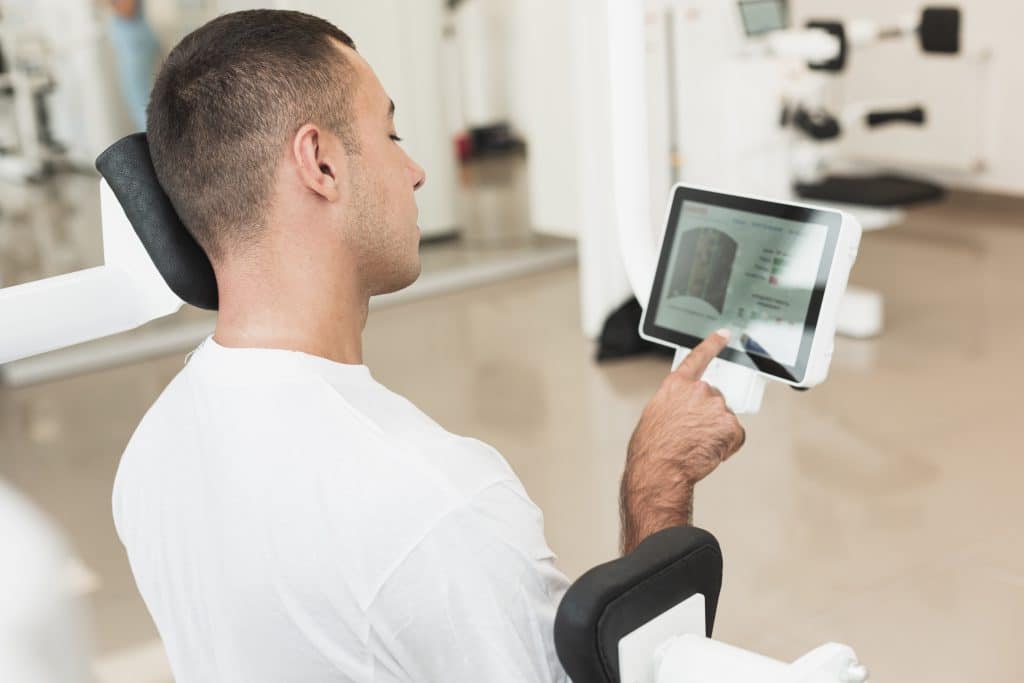The healthcare world is always changing, making it key for chiropractors to understand billing and coding well. In 2024-2025, chiropractors will face new challenges and chances. This guide will help you learn about chiropractic CPT codes, billing, and what you need to document. This will help you get paid right and manage your practice well.

Key Takeaways
- Comprehensive overview of chiropractic CPT codes for 2024-2025, including evaluation and management services, spinal manipulation treatments, and physical therapy procedures.
- Detailed billing guidelines, documentation requirements, and healthcare providers fee schedules for chiropractic care.
- Essential information for accurate billing and optimal practice management in the chiropractic field.
- Alignment with the latest industry trends and regulatory changes to ensure compliant and profitable chiropractic practices.
- Emphasis on understanding the nuances of chiropractic coding to maximize reimbursement and patient satisfaction.
Understanding Evaluation and Management CPT Codes for Chiropractic Care
Chiropractic coding and reimbursement can seem complex. But knowing the Evaluation and Management (E/M) CPT codes is key for chiropractors. These codes, from 99202 to 99215, help document and bill for patient visits accurately.
New Patient Visit Codes (99202-99205)
New patient visit codes range from 15 to 60 minutes. Codes 99202 through 99205 help bill based on the patient's condition and the chiropractor's services.
Established Patient Visit Codes (99211-99215)
For follow-up visits, chiropractors use codes 99211 to 99215. These codes cover the time spent assessing the patient, planning treatment, and providing interventions. Accurate coding is key for insurance reimbursement.
Time-Based Billing Requirements
Time-based billing is important in chiropractic coding. Chiropractors must document the time with each patient. This affects the E/M code choice. Following these guidelines helps get the most reimbursement and stay compliant.
| CPT Code | Time Requirement | Description |
|---|---|---|
| 99202 | 15-29 minutes | Office or other outpatient visit for the evaluation and management of a new patient |
| 99203 | 30-44 minutes | Office or other outpatient visit for the evaluation and management of a new patient |
| 99204 | 45-59 minutes | Office or other outpatient visit for the evaluation and management of a new patient |
| 99205 | 60-74 minutes | Office or other outpatient visit for the evaluation and management of a new patient |
| 99211 | 5-10 minutes | Office or other outpatient visit for the evaluation and management of an established patient |
| 99212 | 10-19 minutes | Office or other outpatient visit for the evaluation and management of an established patient |
| 99213 | 20-29 minutes | Office or other outpatient visit for the evaluation and management of an established patient |
| 99214 | 30-39 minutes | Office or other outpatient visit for the evaluation and management of an established patient |
| 99215 | 40-54 minutes | Office or other outpatient visit for the evaluation and management of an established patient |
Understanding and using these E/M codes correctly helps chiropractors get accurate chiropractic coding and reimbursement. This leads to better financial health and quality chiropractic care for patients.
Chiropractic CPT Codes for Spinal Manipulation
Spinal manipulation is key in chiropractic care. Chiropractors use specific CPT codes to bill for these services. The main codes for chiropractic manipulation treatment (CMT) are:
- 98940 for CMT involving 1-2 spinal regions
- 98941 for CMT involving 3-4 spinal regions
- 98942 for CMT involving 5 spinal regions
- 98943 for CMT involving extraspinal regions
It's important to document correctly when using these chiropractic manipulation treatment codes. Chiropractors need to clearly state the spinal regions treated. They also must use the right modifier, like the Acute Treatment (AT) modifier, to show active care.
Knowing the details of these cmt codes and following billing rules helps chiropractors get more money. It also ensures they meet insurance requirements.
"The top CPT code in chiropractic medical billing is 98940, representing Chiropractic Manipulative Treatment (CMT) for one to two regions, used as the primary therapeutic procedure by chiropractors."
By keeping up with changes and rules for chiropractic manipulation treatment codes, chiropractors can make billing easier. This helps them financially and lets them give great care to their patients.

Physical Therapy and Rehabilitation Coding Guidelines
Understanding physical therapy and rehabilitation coding, including chiropractic CPT codes, can be tough. But knowing the guidelines and best practices is key. It helps get more money back and ensures compliance with regulations. Let's look at the main CPT codes and strategies that healthcare providers need to know.
Therapeutic Exercise Codes (97110-97113)
Between September 2022 and February 2023, the most used physical therapy CPT codes were 97110 (Therapeutic exercises) and 97112 (Neuromuscular Re-education). These codes are vital for billing the rehabilitation services given to patients correctly.
Manual Therapy Techniques (97124-97140)
Manual therapy technique codes, like 97124 (Massage) and 97140 (Manual therapy techniques), are also common. Using these codes right, with the right modifiers like Modifier 59, ensures you get paid correctly and follow rules.
Therapeutic Activities and Self-Care Training
Codes like 97530 (Therapeutic Activities/Kinetic) and 97535 (Self-care/home management training) are also important in chiropractic CPT codes. Good documentation and following payer rules can help increase reimbursement for these services.
By keeping up with CPT code updates, understanding modifier use, and documenting well, healthcare providers can confidently handle physical therapy, rehabilitation, and chiropractic CPT codes. This leads to better reimbursement and regulatory compliance.

Modalities and Physical Medicine CPT Codes
Chiropractic practices use many chiropractic CPT codes for physical medicine modalities, including hot/cold packs, mechanical traction, electrical stimulation, and ultrasound. It's important to know the right chiropractic modalities and their physical medicine CPT codes for billing and compliance.
Hot and cold therapy, with CPT code 97010, is often used in chiropractic care. However, chiropractors must document the medical need for this service, as misuse of this code is a common billing issue.
Mechanical traction, with CPT code 97012, is another modality used by chiropractors, and proper documentation is essential. This is different from chiropractic manipulative treatment (CMT) codes.
Electrical stimulation, with CPT codes 97014 and 97032, is also common in chiropractic practices. Chiropractors need to follow payer guidelines; for Healthcare providers patients, use HCPCS code G0283 instead of CPT code 97014 for unattended electrical stimulation.
Ultrasound therapy, with CPT code 97035, is another frequently used modality. Accurate documentation and adherence to payer policies are essential for successful reimbursement with chiropractic CPT codes.
| CPT Code | Description | Healthcare providers Fee 2024-2025 |
|---|---|---|
| 97010 | Application of a modality to 1 or more areas; hot or cold packs | $13.25 |
| 97012 | Application of a modality to 1 or more areas; mechanical traction | $22.73 |
| 97014 | Application of a modality to 1 or more areas; electrical stimulation (unattended) | N/A (Use HCPCS code G0283 for patients) |
| 97032 | Application of a modality to 1 or more areas; electrical stimulation (manual), each 15 minutes | $22.00 |
| 97035 | Application of a modality to 1 or more areas; ultrasound, each 15 minutes | $22.78 |
Keeping up with the latest chiropractic modalities and physical medicine CPT codes is vital. Also, maintaining detailed documentation is crucial. This ensures accurate billing and reimbursement for chiropractic practices.
FAQ
What are the common CPT codes used by chiropractors for billing and reimbursement?
Chiropractors use several CPT codes for billing. These include codes for evaluation and management services. They also use codes for chiropractic manipulative treatment, therapeutic exercises, and manual therapy techniques.
Additionally, they use codes for physical medicine modalities. These codes help with billing and reimbursement.
How are new and established patient visits coded in chiropractic care?
New patient visits are coded differently than follow-ups. Codes 99202-99205 are for new patients, covering visits from 15-60 minutes. Codes 99211-99215 are for established patients, for follow-ups and evaluations.
It's important to bill based on the time of the visit for accurate reimbursement.
What are the Chiropractic Manipulative Treatment (CMT) codes and how are they billed?
CMT codes range from 98940 to 98943. These codes depend on the number of spinal regions treated. For example, 98940 is for 1-2 regions, and 98943 is for extraspinal regions.
It's crucial to document the treated regions and use the AT modifier for active treatment.
What physical therapy and rehabilitation CPT codes are relevant for chiropractors?
Chiropractors use several codes for physical therapy and rehabilitation. These include codes for therapeutic exercise, manual therapy techniques, and therapeutic activities.
They also use codes for self-care training. It's important to follow documentation requirements and healthcare providers fee schedules for each code.
What are the common physical medicine modality codes used by chiropractors?
Chiropractors use various modality codes for treatment. These include codes for hot/cold packs, mechanical traction, and electrical stimulation.
They also use codes for ultrasound. Proper documentation and medical necessity are key for each modality.
What are the key considerations for effective chiropractic billing and coding?
Accurate coding and proper documentation are crucial for chiropractic billing. Understanding healthcare providers guidelines is also important.
Using resources like healthcare providers manuals and AMA CPT code updates can help. This ensures optimal reimbursement and practice management.





